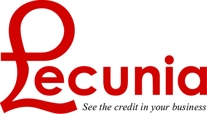You are here:
Home » Latest » Cash flow is critical for small businesses
Cash flow is critical for a small business because it needs money to pay suppliers, employees and overheads such as rent and utilities. Firms must ensure they have sufficient working capital for these day-to-day operations. Often this is tied up in monies owed to the business by customers who have bought goods or services on credit.
Small businesses can take steps at the beginning of a relationship with a customer to help protect this position; this is known as better underwriting of credit.
Two of the fundamental requirements for a business are
- to determine the true legal identity of the customers i.e. are they
- a sole trader, partnership or
- a limited company and
- establish and regularly monitor the creditworthiness of the customers i.e. their ability to pay your invoices as and when they fall due.
This will not eradicate all problems of customers who pay late but will enable the small business to know who is liable for payment in the event of default.
Most of the information required can be obtained by asking a potential customer to complete and sign a carefully designed credit account application form, which should also contain your standard payment terms.
However, it does not stop here as businesses then need to develop and maintain a relationship with customers to ensure payments are received as near to the due date as possible. This will involve understanding your customers’ procedures for approving your invoices for payment and when their payment runs are made.
For key customers, a polite telephone call BEFORE a payment is due will often identify if there are any problems which can be rectified in time to minimise any potential shortfall before it is too late.
Procedures should be put in place whereby the debtors’ ledger is monitored and all overdue accounts are chased immediately. This does not mean that they have to be pursued aggressively as often a polite initial call will either secure the payment or will identify at an early stage if the customer has any financial problems which are impacting the small business being paid on time.
Putting off making any phone calls for overdue accounts could otherwise increase the exposure of small businesses especially if they continue to supply further goods to the customer.
Many small firms do not have the need to employ a full-time credit controller.
This will often mean the monitoring of the outstanding balances is left under the remit of somebody within the firm who has other responsibilities and who might see this aspect as being the one element of their job they do not like doing – asking for payment. However, this is vital and often a half day training course can improve a person’s skills in this area whilst having a significant influence on the cash flow of the small business. A shortage of cash flow could very well lead to the insolvency of the business.
As illustrated in the Carillion, House of Fraser, BHS, Debenhams or other large and long standing companies, small businesses should never take it for granted that because a customer is a household name that payment will always be received, even if it is a bit late. In this regard, it would be a sensible policy to have an even spread of customers rather than just one or two major accounts.
Timing of large cash movements in a month, comprising of payments from customers and payments to suppliers, is also crucial. Consequently, small firms should keep a strict watch on payment due dates and cash flow.
Whilst the owners of small businesses need to find the correct balance between the commercial and financial aspects of marketing, selling and being paid for the goods and services they provide it should be understood that any accounts that are paid late will reduce the profits on those sales. Similarly, any extended credit terms given to customers in order to tempt them away from your competitors should be analysed to ensure the extra profits you hope to make are higher than the additional costs which will be incurred in doing so.
©Pecunia(2016)LTD


